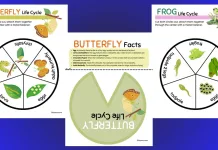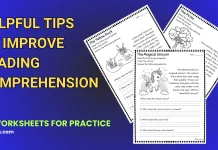Vocabulary is more than just a collection of words; it’s a powerful tool that empowers children to communicate effectively, express themselves, and excel in academics. Developing a robust vocabulary is crucial for kids as it plays a significant role in their language acquisition, literacy skills, and overall cognitive development. In this blog post, we’ll explore why vocabulary is vital for children and provide some practical tips and resources to help them expand their word power.
The Importance of Vocabulary for Kids:
- Enhanced Communication Skills: A rich vocabulary allows children to articulate their thoughts and feelings more precisely. This helps them express themselves clearly, which is essential for effective communication with peers, teachers, and family members.
- Academic Success: Vocabulary is a cornerstone of academic achievement. Strong language skills enable kids to understand and interpret complex texts, excel in reading comprehension, and perform well in various subjects such as language arts, social studies, and science.
- Boosted Confidence: As children become more adept at using a diverse range of words, their confidence in speaking and writing grows. This confidence not only benefits their academic performance but also their social interactions.
- Critical Thinking and Problem-Solving: A robust vocabulary encourages critical thinking. Kids with a rich word bank can analyze situations, make connections, and solve problems more effectively.
- Future Career Opportunities: Strong communication skills are highly valued in the professional world. Building a solid vocabulary during childhood can set the stage for success in future careers and endeavors.
Tips to Improve Kids’ Vocabulary:
- Read Together: Reading is one of the most effective ways to expand vocabulary. Make reading a daily habit, and discuss new words encountered in books.
- Word Games: Engage in word games like Scrabble, crossword puzzles, and word searches. These games are not only fun but also educational.
- Use Context Clues: Encourage kids to use context clues to understand the meanings of unfamiliar words while reading or listening to stories.
- Keep a Word Journal: Have your child maintain a journal where they can jot down new words they come across. They can also write sentences using these words to reinforce their understanding.
- Regular Conversations: Engage your child in meaningful conversations. Ask open-ended questions and encourage them to express themselves using new words.
- Online Resources: Explore online resources like vocabulary-building apps and websites tailored to kids, such as Vocabulary.com and VocabularySpellingCity.com.
- Visit the Library: Libraries often host vocabulary-related programs and events. Take advantage of these resources in your community.

Conclusion:
A strong vocabulary is a gift that keeps on giving throughout a child’s life. By nurturing this essential skill from a young age, parents and educators can help children build a foundation for success, both academically and in their future endeavors. Encourage a love for words, make learning fun, and watch as your child’s vocabulary blossoms, opening doors to a world of knowledge and opportunity.




THIS IS VERY USEFUL , THANK YOU SO MUCH RAKHI FOR YOUR HARDWORK
Thanks Aisha for your kind words!